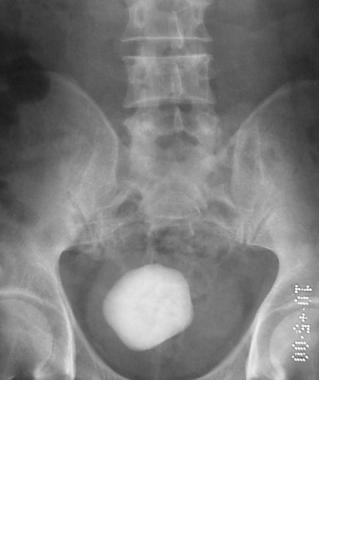Bladder stones

How do bladder stones form?
Bladder stones occur when minerals in concentrated urine crystallise out to form a stone. Occasionally stones come down from the kidney and into the bladder but most stones form when the bladder does not drain properly leaving a lot of residual urine. We often see this in men with enlarged prostates and in people with paralysis and strokes. Bladder infections and foreign bodies may also play a role.
What are the symptoms of bladder stones?
Bladder stones may cause no symptoms at all. They often cause lower abdominal pain or pain with urination. They may cause frequency of urination, blood in the urine and urinary tract infections. The man may complain of poor urinary stream.
How are bladder stones diagnosed?
Often, bladder stones are found during workup for urinary problems.
Because bladder stones may be as a result of another underlying process, your doctor should take a good history and perform a physical examination to make sure he does not miss anything.
In men, it is important to examine the prostate. If your doctor suspects you have bladder stones, he will order some form of imaging, usually a plain tummy X-ray. Sometimes the stones may be visible with an ultrasound. Some stones do not show up on X-rays and a CT scan may be necessary.
How are bladder stones treated?
Drinking lots of fluids may help smaller stones to pass naturally but most stones will require surgical removal. Surgical removal is most commonly done through the urine passage without the need for a cut.
An instrument with a camera is passed into the bladder and the stone is broken up using a crushing clamp, a laser or tiny vibrating probe that works like a jackhammer. If the stone is very large, it may require a cut in the lower tummy – this will necessitate a catheter (bladder drainage tube) for a few weeks to allow the bladder to heal. Whatever method is used, the urologist should also treat outflow problems such as the enlarged prostate or the stone is likely to return! This may be done at the same sitting or separated into two operations.


Comments
"Bladder stones"